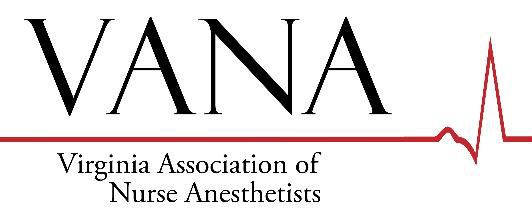Joint Commission on Health Care Overview
The Virginia legislature’s Joint Commission on Health Care (JCHC) released its report titled Strategies to Strengthen the Anesthesia Workforce in Virginia in late 2024. The report highlighted several key points that are critical to understanding the value Certified Registered Nurse Anesthetists (CRNAs) provide to patients in Virginia as anesthesia experts.
The following four excerpts from the report shed important light on the vital role CRNAs fill in addressing patient anesthesia needs:
- Literature suggests there is no difference in patient safety or patient outcomes with CRNAs compared to anesthesiologists. Stakeholders agree that both anesthesiologists and CRNAs provide safe, effective, and high-quality anesthesia services to patients after completing thousands of hours of education and training.
- Stakeholders agree that more restrictive supervision requirements for CRNAs would be detrimental to efforts to address anesthesia workforce shortages, particularly for remote or rural facilities in Virginia that use proceduralists as CRNA supervisors and may not have physician anesthesiologists on staff.
- Evidence indicates that less restrictive CRNA supervision requirements present a low risk of harm to patients and a possible benefit to the anesthesia workforce.
- Stakeholders interviewed nearly unanimously support increasing the capacity of Virginia’s physician anesthesiology residency programs and CRNA doctoral training programs as a strategy to address provider shortages.
As the JCHC considered the five policy options made available through the release of the report, the Virginia Association of Nurse Anesthetists (VANA) board of directors advocated the following positions to the members of the JCHC on the policy options laid out in the report:
- Option 1: VANA was not opposed to the recommendation of updating regulations governing practice of advance practice registered nurses licensed as CRNAs with the Board of Nursing. Every CRNA is board certified through the NBCRNA which upholds the scope of practice. We welcome the opportunity to keep regulations as up to date as possible.
- Option 2: VANA supported the recommendation that increasing supervision would be detrimental to the anesthesia workforce in Virginia. As the report found, there was agreement that both anesthesiologists and CRNAs provide safe, effective, and high-quality anesthesia services and that Virginia-based health systems saw no difference in the quality of care between anesthesia providers. Expanding supervision restrictions would only bring about burdensome regulations that could prove harmful to workforce shortages.
- Option 3: VANA supported transitioning CRNAs to independent practice but disagreed that we need additional time to develop a report on the transition’s implementation. Many states have already implemented such a system, and we can rely on an existing framework to create a smooth transition.
- Option 4: VANA was not opposed to this option, which requires DHP to re-analyze the state of the anesthesia workforce in Virginia to determine whether there is sufficient proof of an anesthesia workforce shortage to justify the licensure of Certified Anesthesiologist Assistants (CAAs). However, if this option moves forward, VANA would urge DHP to prioritize its analysis to include a study of the impact CAAs could have on CRNA residency and clinical rotation sites and slots. DHP’s 2017 CAA study concluded that CAAs should not be licensed in Virginia, citing the fact that CAAs would overlap with CRNAs and would increase competition for the limited residency and clinical rotation sites and slots for CRNA students. Adding a CAA training option to the mix could compound that problem, effectively reducing the amount of CRNA students in Virginia. Thus, any analysis by DHP must consider balancing the training needs of Virginia’s existing providers. CAAs must work within the medical direction model. CAAs would not address the workforce shortage and would only decrease the available training slots for those providers. CRNAs or anesthesiologists can positively address the workforce shortage.
- Option 5: VANA supported developing further opportunities to fund the Virginia Health Workforce Development Authority to study the capacity and needs of current anesthesiology residency programs and CRNA training programs in order to make recommendations for further expansion.
We strongly urged the committee to vote in favor of options two, three, and five. A yes vote on those options would have demonstrated strong support for the CRNA profession and highlighted the JCHC as a champion of patient needs across the Commonwealth of Virginia.
Unfortunately, we were disappointed by the JCHC’s decision to maintain the status quo and reject the options presented by JCHC staff to modernize Virginia’s anesthesia delivery model. Instead of embracing the findings that CRNAs are safe, effective providers with no evidence of increased patient harm when practicing to the full extent of their license, the JCHC opted to allocate significant resources to license Certified Anesthesiologist Assistants (CAAs), whose mandatory supervision requirements will fail to alleviate workforce shortages in Virginia and may further diminish the CRNA workforce in the Commonwealth. The JCHC’s decision did not make sense and undermined efforts to expand and modernize the anesthesia workforce.
Virginia is faced with an anesthesia provider shortage and every day, hospitals, dental offices, podiatry practices, and ambulatory surgery centers (ASCs) depend on CRNAs as the sole anesthesia providers in these settings. Notably, these facilities have no record of increased patient harm associated with CRNAs.
The decisions made by the JCHC in December reflect the broader struggle of Virginia’s patients, who must contend with powerful, entrenched interests leading policy efforts and resisting change despite clear evidence of safety, effectiveness, and need.
At VANA, we will not back down in our fight to ensure Virginia’s patients have accessible, high-quality anesthesia care. VANA remains steadfast in its mission to advocate for policies that empower CRNAs to deliver safe, patient-centered care.

